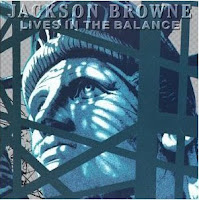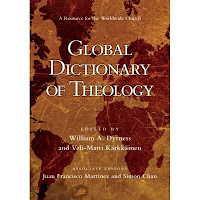 14 May 2008 marked the 60th anniversary of the birth of the modern State of Israel. The fundamental problem in the long-running Israel/Palestine dispute is that Jews in the newly formed Israel stole land from the indigenous Arabs, taking it by force. Insofar as Britain and the international community provided the authority, they did so in the face of understandable opposition from those adversely affected. The horrendous fact that Christian evangelicals have to face now is that this theft, with all its subsequent misery for hundreds of thousands of people, was done in their name. Scofi eld Dispensationalism was strong in the 1940s and still lives on, represented in a number of popular Christian books that promote Christian Zionism.
14 May 2008 marked the 60th anniversary of the birth of the modern State of Israel. The fundamental problem in the long-running Israel/Palestine dispute is that Jews in the newly formed Israel stole land from the indigenous Arabs, taking it by force. Insofar as Britain and the international community provided the authority, they did so in the face of understandable opposition from those adversely affected. The horrendous fact that Christian evangelicals have to face now is that this theft, with all its subsequent misery for hundreds of thousands of people, was done in their name. Scofi eld Dispensationalism was strong in the 1940s and still lives on, represented in a number of popular Christian books that promote Christian Zionism.
Our belief in future blessing for the Jewish people and our commitment to their evangelisation, neither of which are challenged in the books here reviewed, has for many become mired in a confused eschatology rooted in bad exegesis, resulting in an obsession with land which the New Testament cannot sustain. This is not to deny the tragedy of the world’s treatment of Jews over centuries. Unfortunately millions of conservative evangelicals have supported a solution that has involved replacing one tragedy with another. Millions support Christian Zionism.
The writers of Light Force try to provide a Christian answer to the political conflict. The first edition (I read the American version) was an absorbing read and I look forward to seeing the second. In Light Force, Brother Andrew (of God’s Smuggler fame) tells of his personal journey of understanding, starting at the usual stereotyped dispensational beliefs about Israel, through to meeting Christians of all hues, which led to some understanding of the pressures Christians in Israel live with day to day. Most of the focus on Christians is on Arabs in Lebanon, Bethlehem and Gaza. The book gives a good introduction to the complex situation in Israel. It focuses mainly on issues of reconciliation between Jew and Arab, arguing that this should be possible and is most likely among Christians who are already one in Christ Jesus.
The book is an emotional read, challenging Christian Zionism at the level of personal experience. Even Moslems who hate Jews become real people as we see them being confronted by Brother Andrew and asked to forgive and make peace. I just wish Andrew’s role had been less hyped up.
 Stephen Sizer’s Zion’s Christian Soldiers? is quite different in style to Andrew’s book, requiring more application from the reader, but it also challenges Christian Zionism. Sizer compares covenantalism and dispensationalism. He explores the relationship between the old and new covenants and shows the danger of taking contemporary events to be the realisation of biblical prophecy. He examines the question of who the Israel of God is, and emphasises the centrality of Christ in the Bible message and the oneness of His people. The land is considered both in its importance in the Old Testament and the relative silence about it in the New, where God’s kingdom on earth is international and His people look for a better inheritance.
Stephen Sizer’s Zion’s Christian Soldiers? is quite different in style to Andrew’s book, requiring more application from the reader, but it also challenges Christian Zionism. Sizer compares covenantalism and dispensationalism. He explores the relationship between the old and new covenants and shows the danger of taking contemporary events to be the realisation of biblical prophecy. He examines the question of who the Israel of God is, and emphasises the centrality of Christ in the Bible message and the oneness of His people. The land is considered both in its importance in the Old Testament and the relative silence about it in the New, where God’s kingdom on earth is international and His people look for a better inheritance.
Successive chapters are given to the place of Jerusalem, the temple in current Christian Zionist thought, and the inherent pessimism of dispensational rapture theology: matters which we may regard as of little interest except that they drive much of American evangelicalism, and in consequence American foreign political policy. Sizer counters such error by pointing to the centrality of Christ in the Bible’s progressive revelation, a message of hope for the world, a message that encourages the Christian to faithfulness. The book concludes with a sermon by John Stott. If you regard Israel as a fulfilment of prophecy, read this book. Iain Gill The Monthly Record, [The Free Church of Scotland] June 2008, p. 12. pdf version of review






 With the leaking, last month, of the names, addresses and occupations of the 12,000 members of the British National Party (BNP), media attention, such as the
With the leaking, last month, of the names, addresses and occupations of the 12,000 members of the British National Party (BNP), media attention, such as the 




